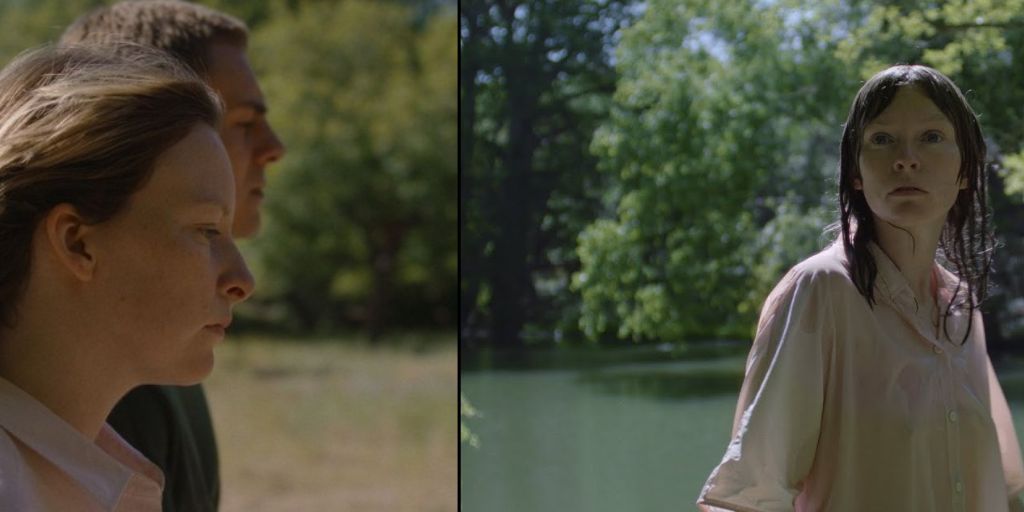Lucy Kerr’s Family Portrait isn’t your typical family drama. It starts off deceptively normal, a family gathering in Texas for what seems like an ordinary day. But as the film progresses, a sense of unease creeps in, a feeling that something is terribly wrong beneath the surface.
The film excels in its ability to create dread through a combination of unsettling visuals and sound design. We see a family milling about, their conversations muffled by a strange humming sound.
The camera lingers on seemingly mundane scenes – kids running around in Santa hats, adults making half-hearted attempts at conversation. Yet, there’s a disconnect, a feeling that nobody is truly present.
Kerr’s direction and Lidia Nikonova’s cinematography are key to the film’s effectiveness. They frame the scenes in a way that amplifies the chilling reality – our tendency to overlook what’s truly important.
A character discusses a photo in detail, a detail connection drawn to the film “They Live,” highlighting our capacity to numb ourselves to underlying issues.
Deragh Campbell delivers an excellent performance as Katy, the one person seemingly aware of the disquiet. We follow her growing unease as her attempts to hold the family together unravel with the disappearance of her mother.
The film is filled with off-kilter moments – a character reaching deep into their mouth, a bizarre conversation about a live webcam of a coffee pot. These seemingly random events contribute to the overall unsettling atmosphere.

Around the halfway point, the film takes a bold turn. Katy abruptly leaves the family gathering, venturing into the woods. This shift disrupts any sense of grounding, leaving the audience adrift.
Yet, Kerr executes this transition with confidence, maintaining control over the narrative even as it becomes increasingly surreal.
Family Portrait is not a film that spoon-feeds its audience. The imagery is open to interpretation, forcing viewers to confront the unsettling truths lurking beneath the surface of this seemingly ordinary family gathering.
The final shots are devastating, leaving a sense of profound loss and a lingering feeling that something has broken beyond repair.
This is not a film for the faint of heart. It’s a haunting experience that will stay with you long after the credits roll. But for those willing to take the plunge, Family Portrait offers a thought-provoking familial dysfunction and the dangers of ignoring what truly matters.
The Review
Family Portrait Review
Lucy Kerr's Family Portrait transcends typical family drama, weaving a tale of profound unease through its expert combination of unsettling visuals and sound design. The film gradually reveals the underlying dysfunction of a seemingly normal family gathering in Texas. Kerr's direction, alongside Lidia Nikonova's evocative cinematography, creates a chilling atmosphere where mundane interactions carry a sense of disconnection and underlying dread. Deragh Campbell's standout performance as Katy, the family's perceptive anchor, adds depth to the narrative as her efforts to hold the family together unravel with her mother's disappearance. The film's bold narrative turn, marked by Katy's surreal journey into the woods, heightens the sense of disorientation and unease. The movie challenges viewers with its open-to-interpretation imagery, culminating in a devastating conclusion that underscores the dangers of ignoring what truly matters. It's a haunting, thought-provoking experience that lingers long after the credits roll.
Review Breakdown
-
Cinematography
-
Acting
-
Plot




